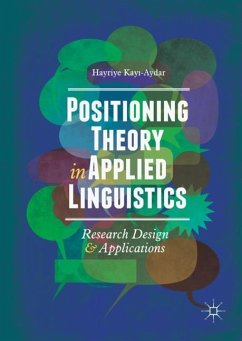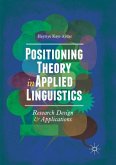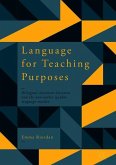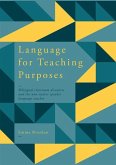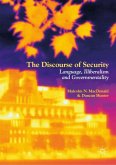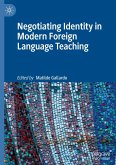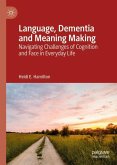This book is about Positioning Theory (Davies & Harré, 1990) and its potential applications in bilingual and multilingual contexts involving teachers, learners, speakers, and users of a second/foreign or additional language. By using Positioning Theory as a theoretical lens and analytical approach, the author illustrates how various social and poststructural concepts in applied linguistics and language teacher education, including identity, agency, language socialization, classroom participation, and intercultural communication, can be investigated and better understood. The book adds a new perspective to the growing body of multidisciplinary literature in the areas of L2 teacher education and classroom learning, and includes step-by-step guidelines for positioning analysis, insights and implications for classroom practice, as well as suggested directions for future research. It will be of particular interest to language teachers and teacher educators, as well as students and scholarsof applied linguistics more broadly.
"Kayi-Aydar takes a pedagogical approach in explaining positioning theory with clarity and simplicity that makes reading the book a rewarding experience. It is clearly written for educational researchers just discovering the theory, although it will benefit anyone interested in discourse and identity. ... Positioning Theory in Applied Linguistics effectively is accessible and usable for researchers." (Felix Kwihangana, Educational Review, Vol. 73 (2), 2021)

